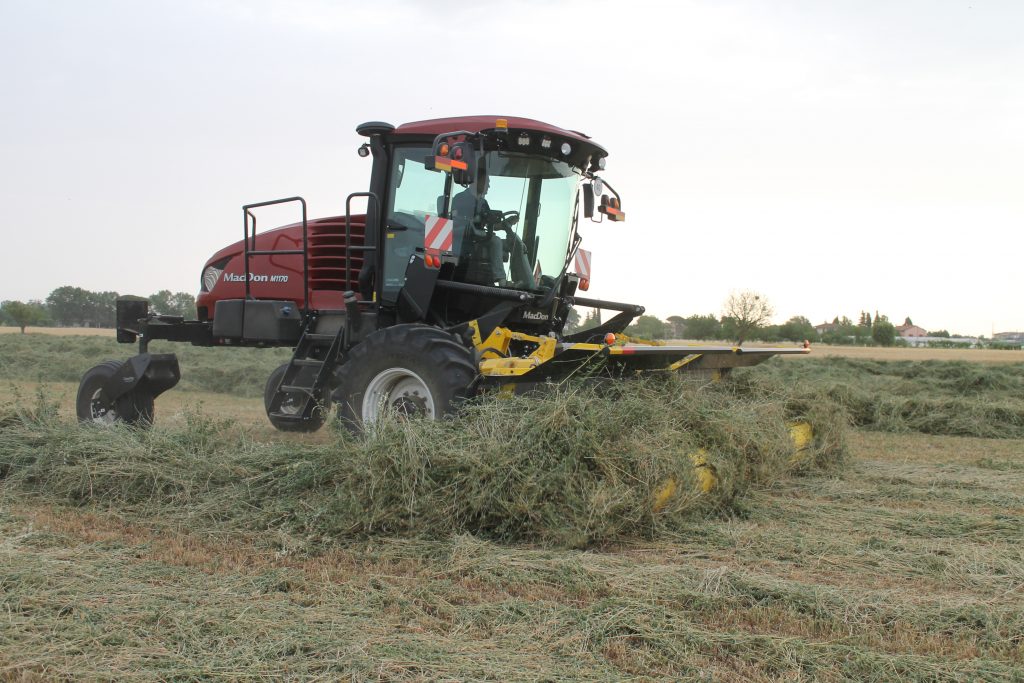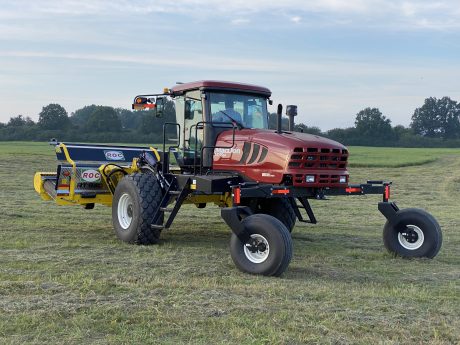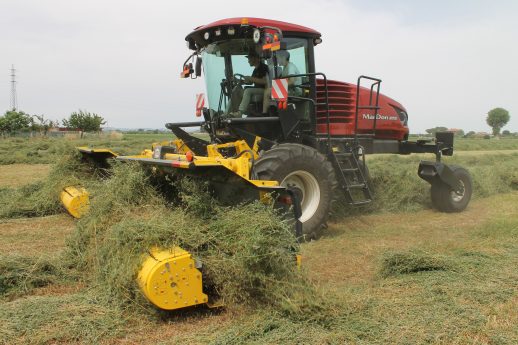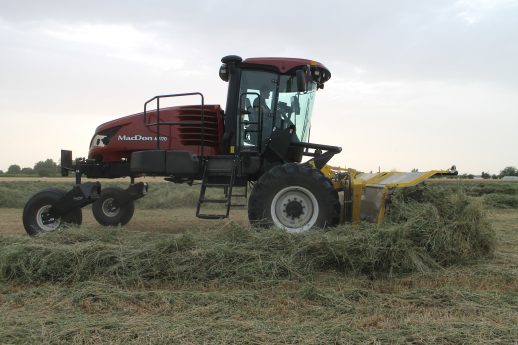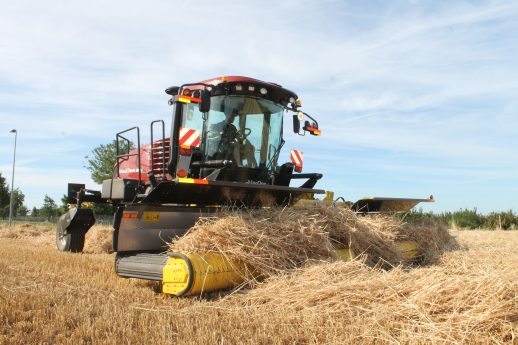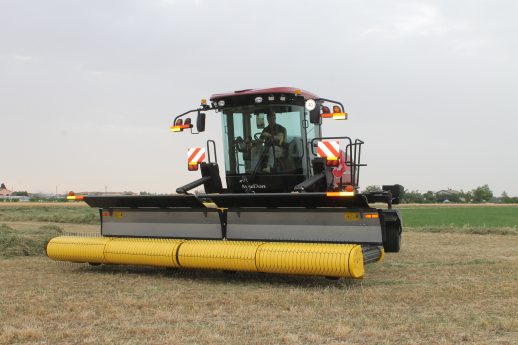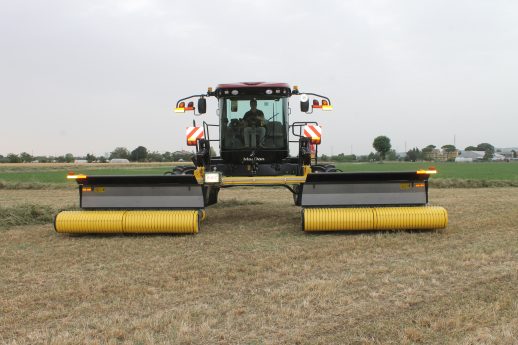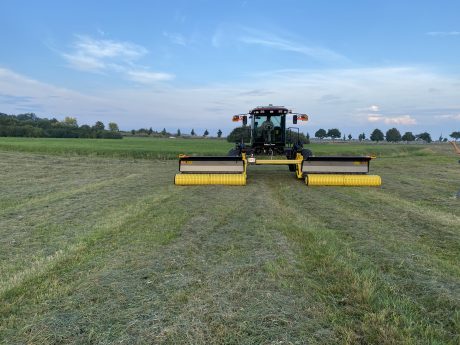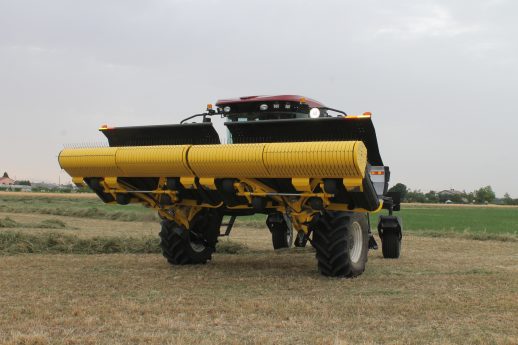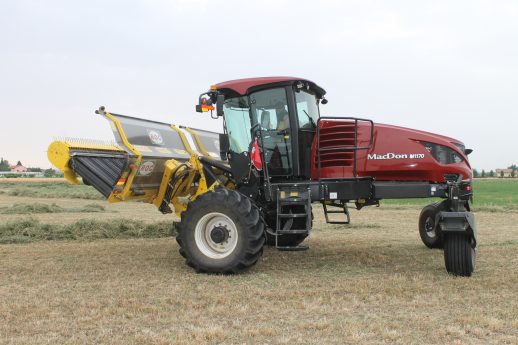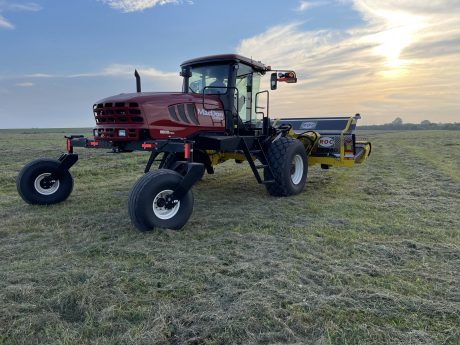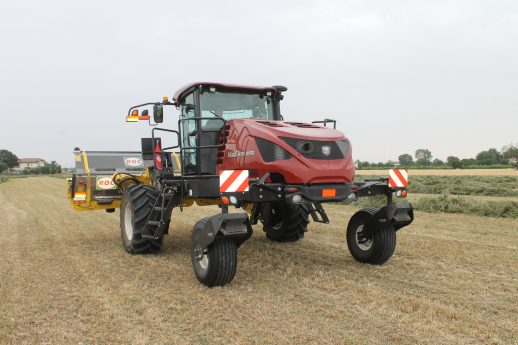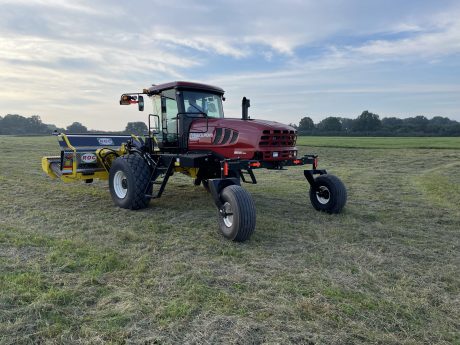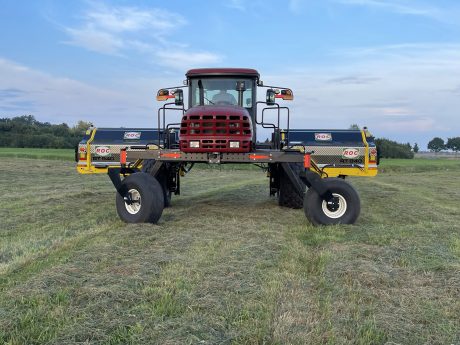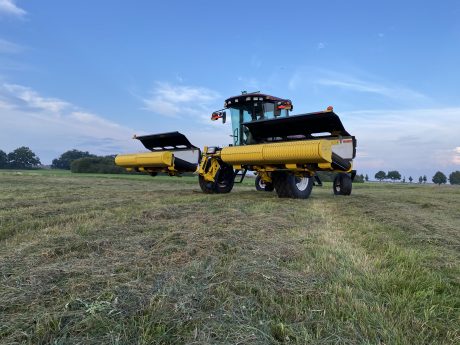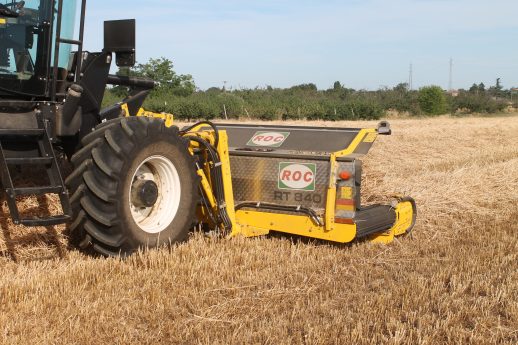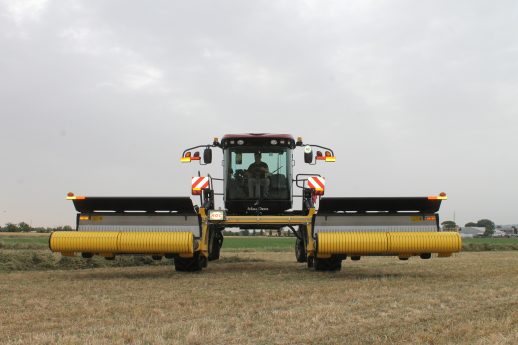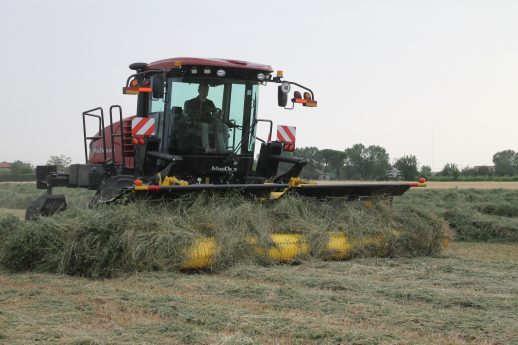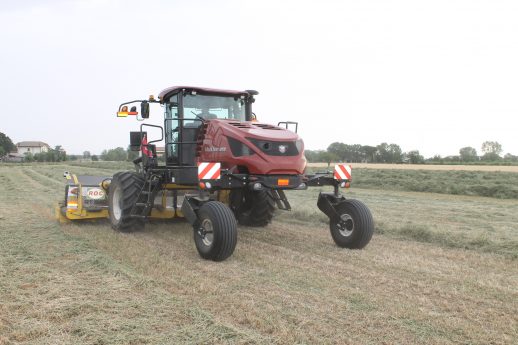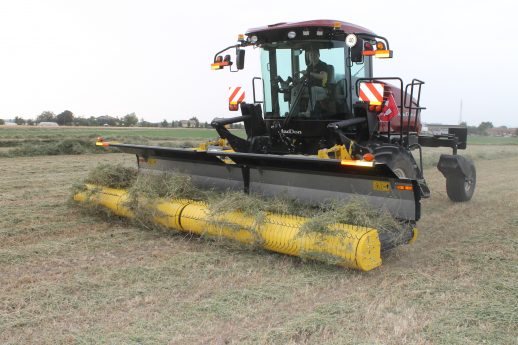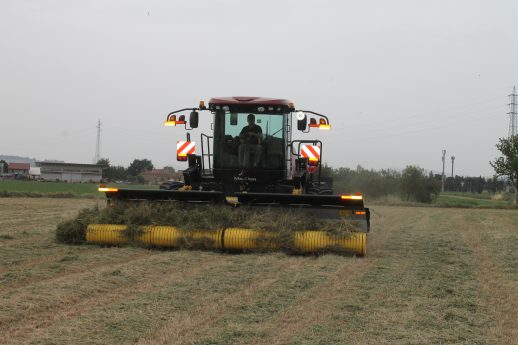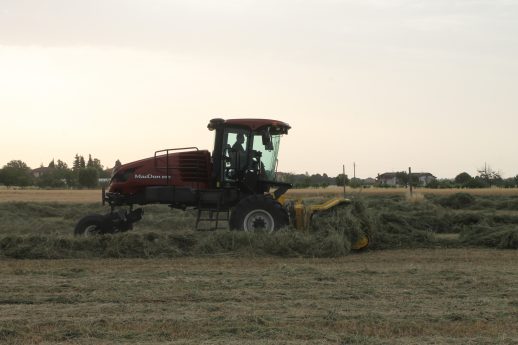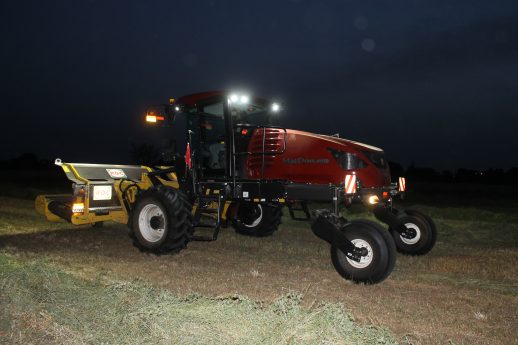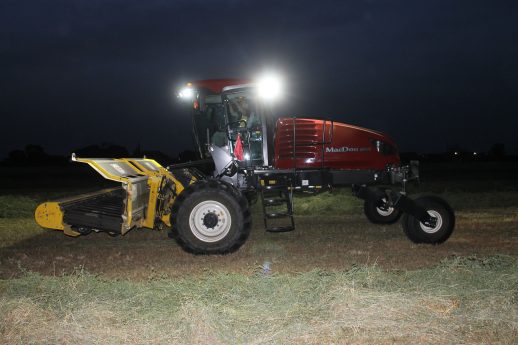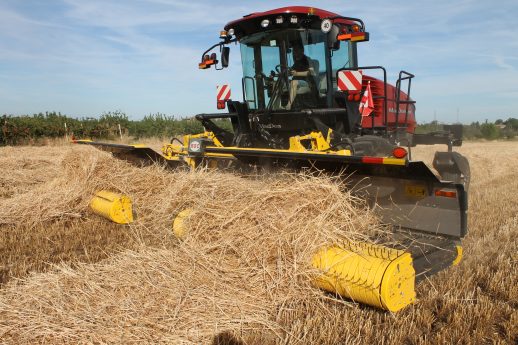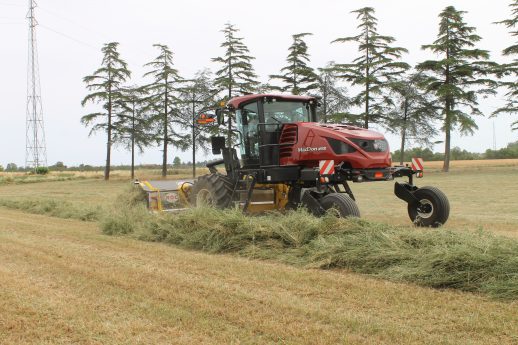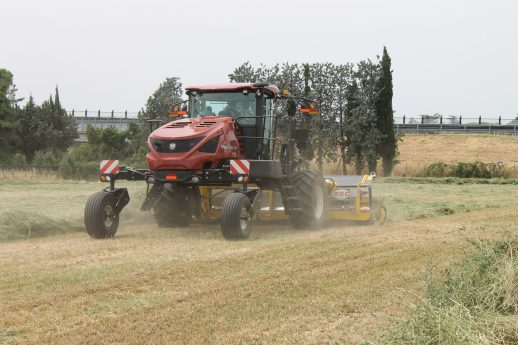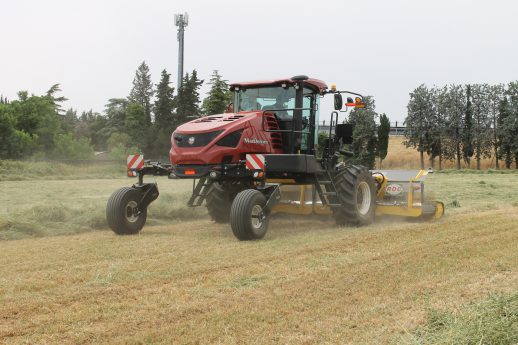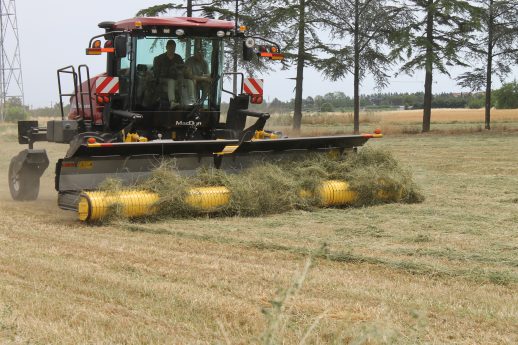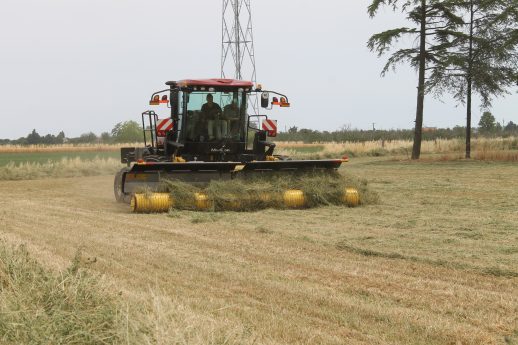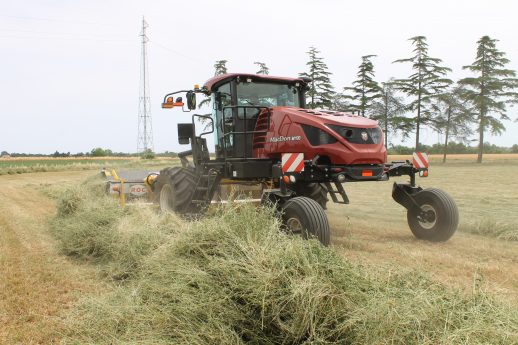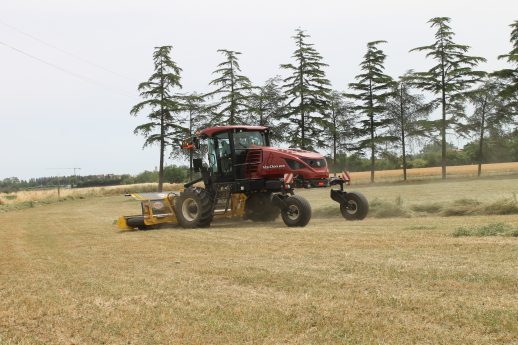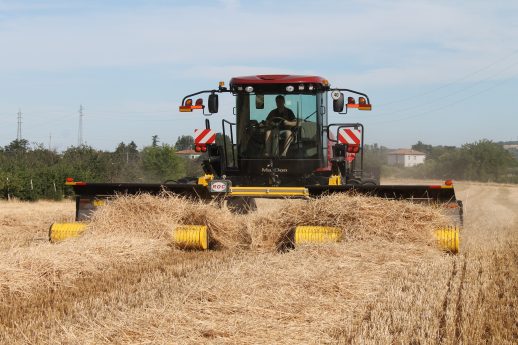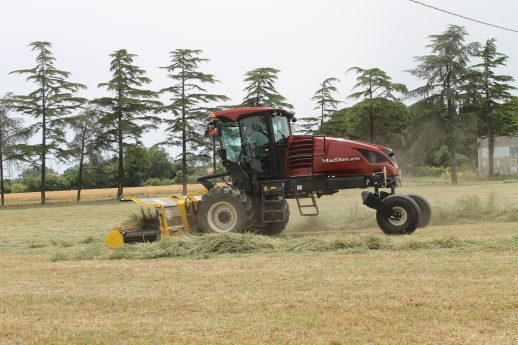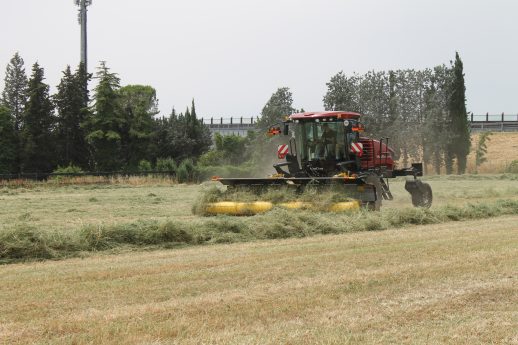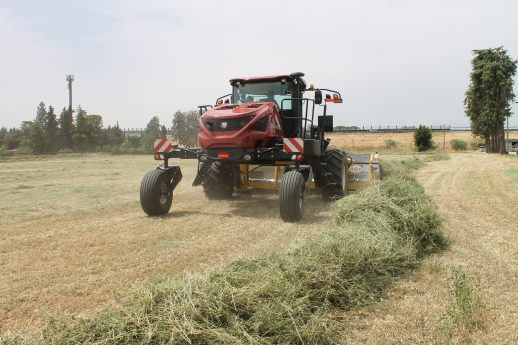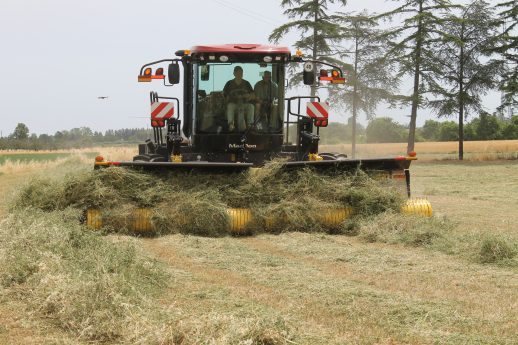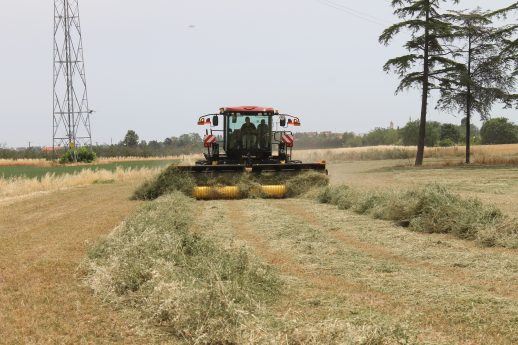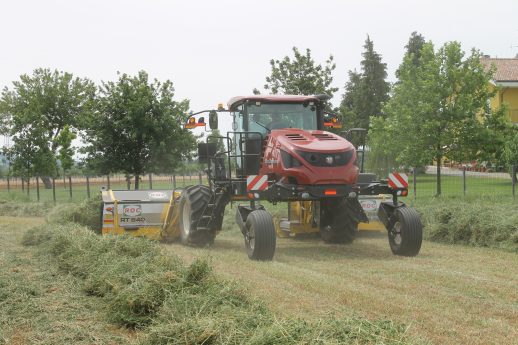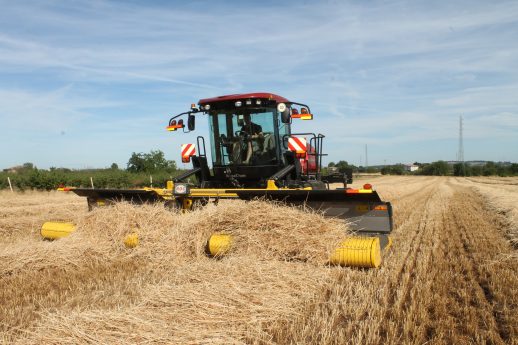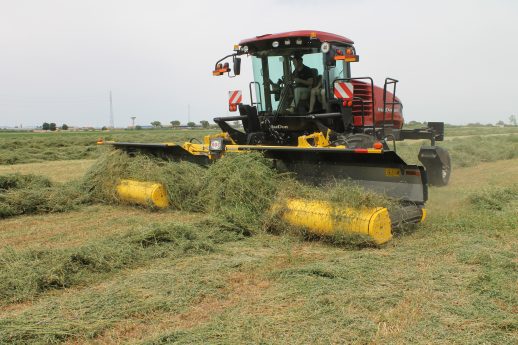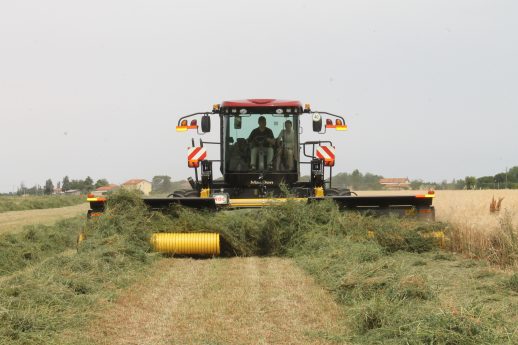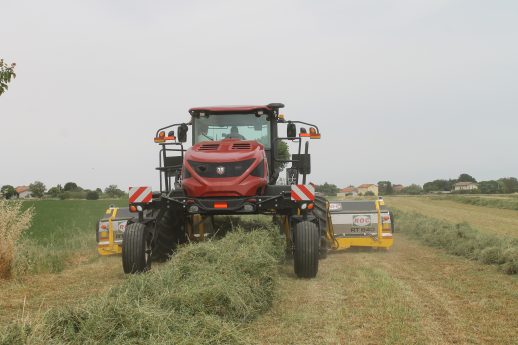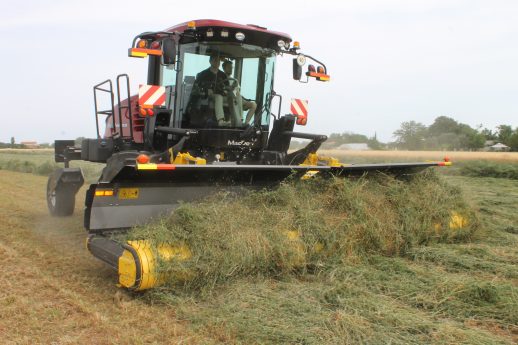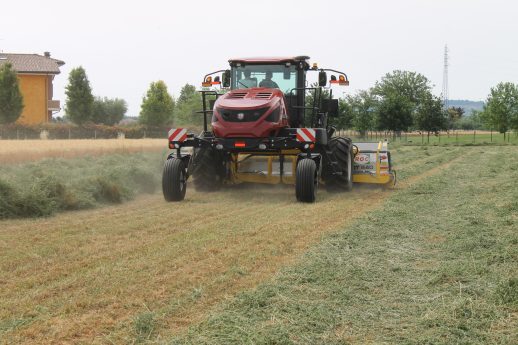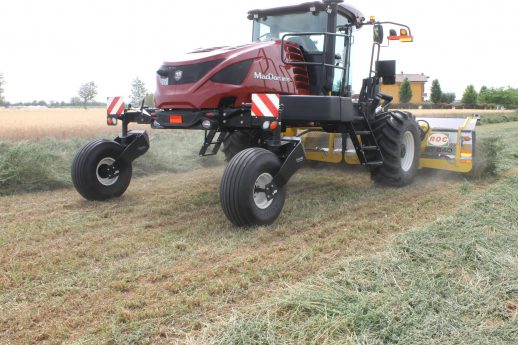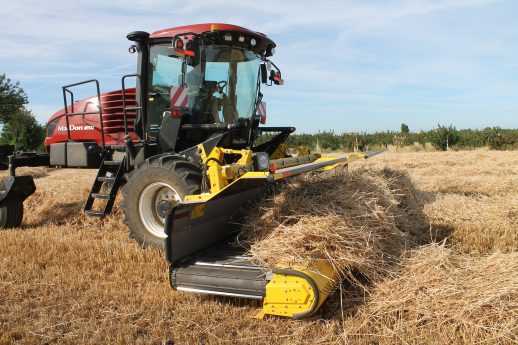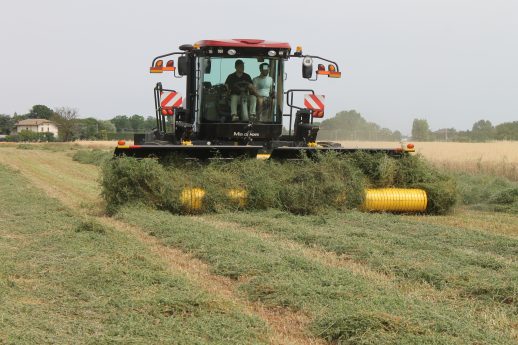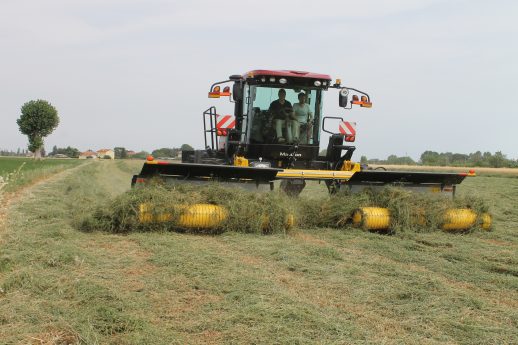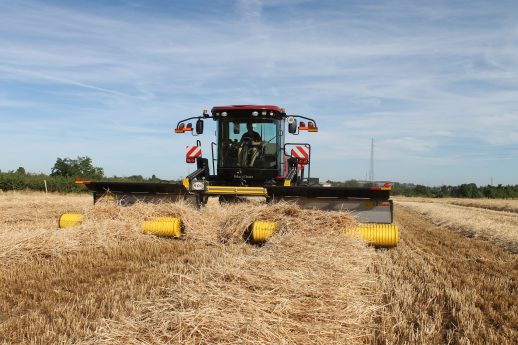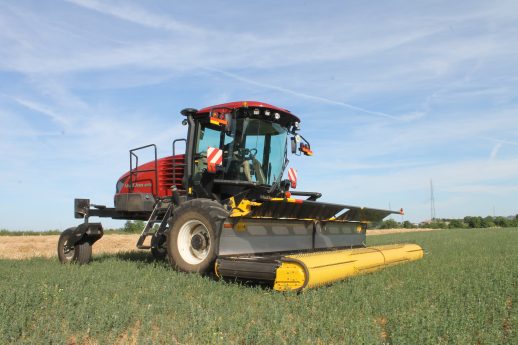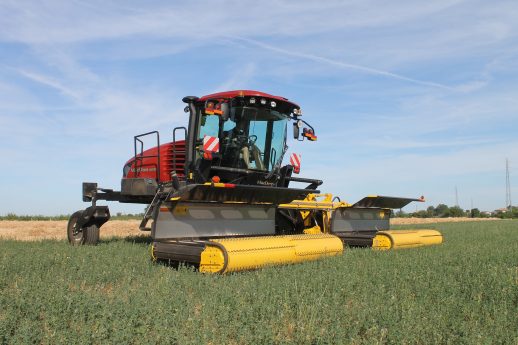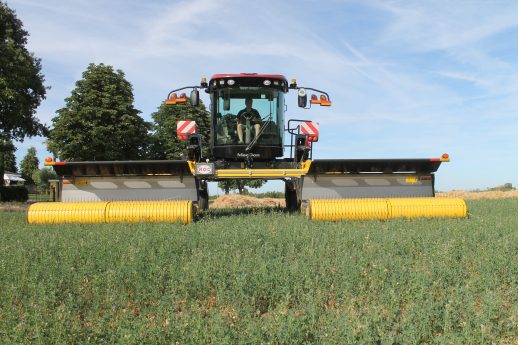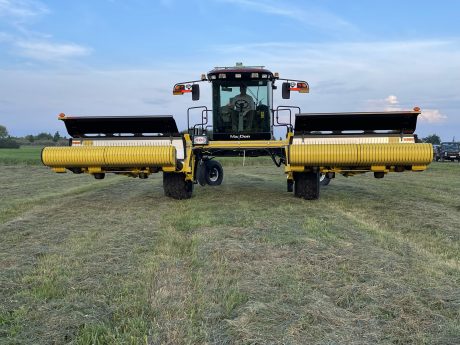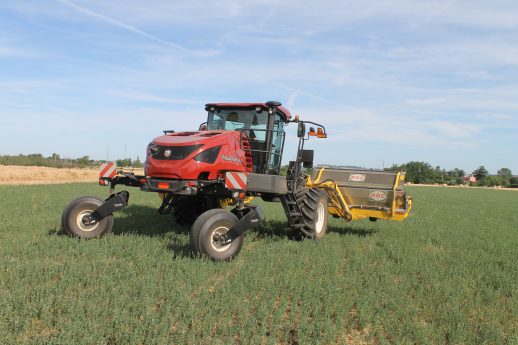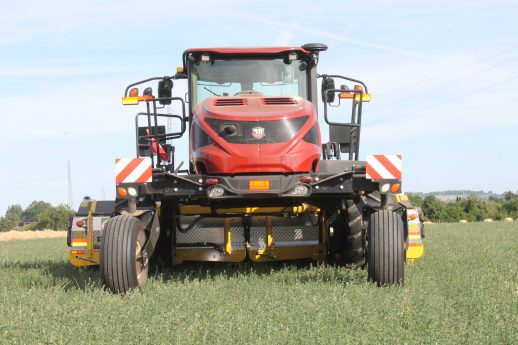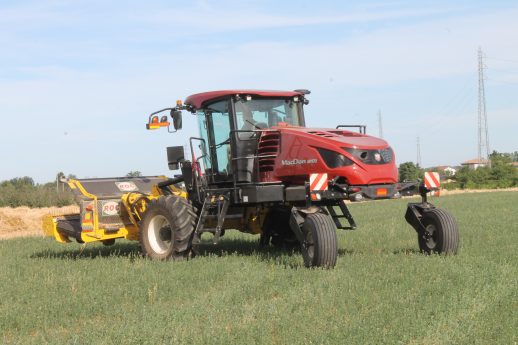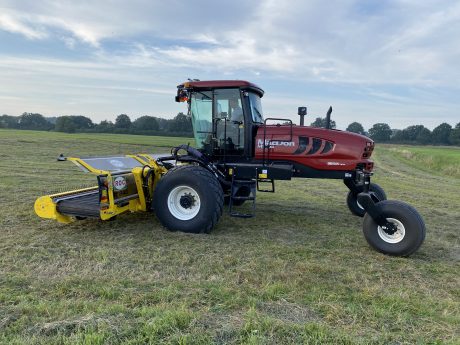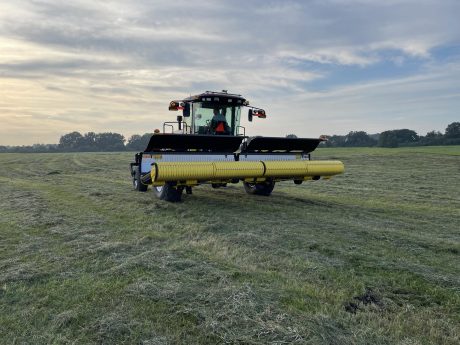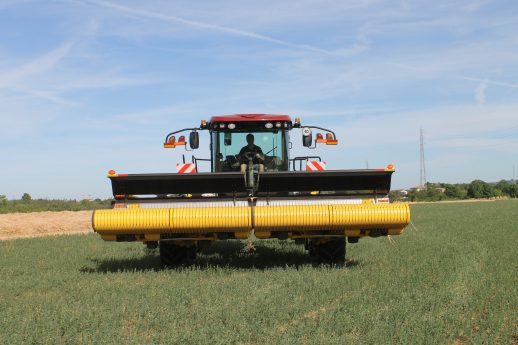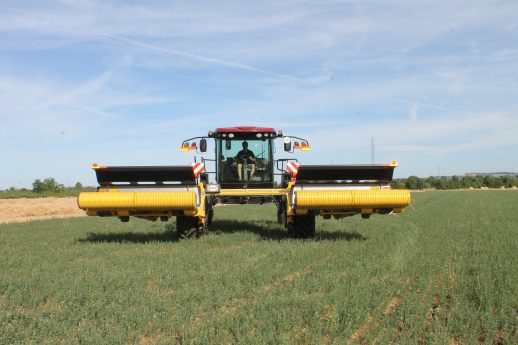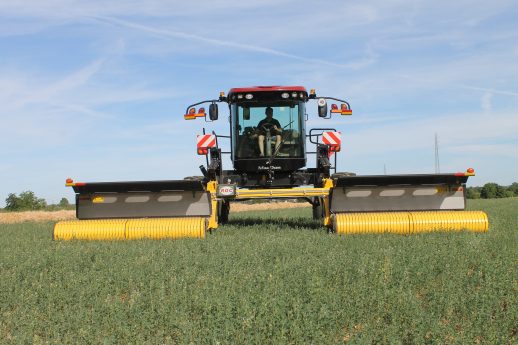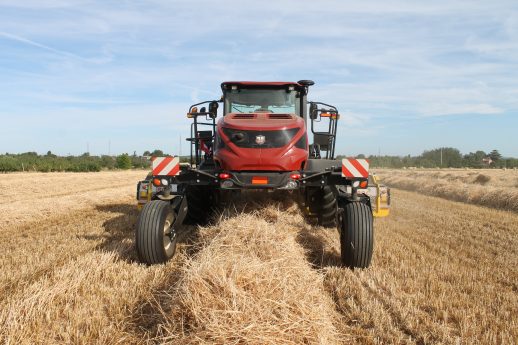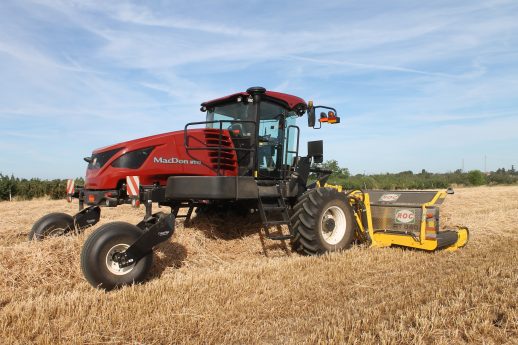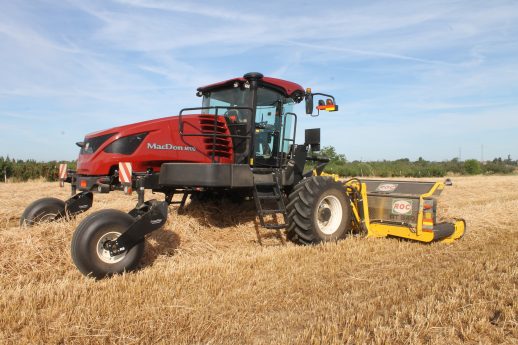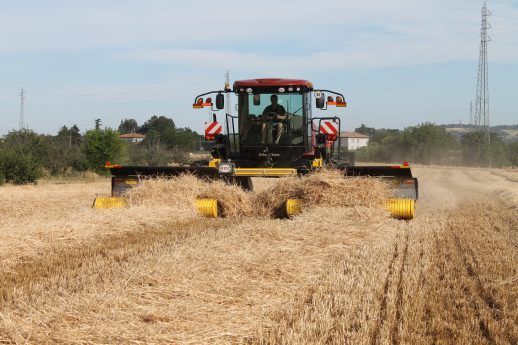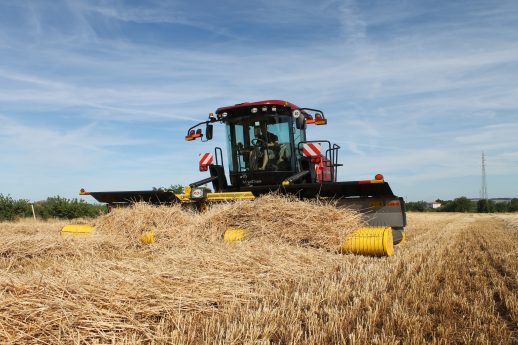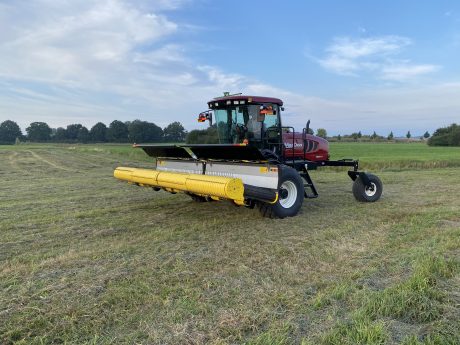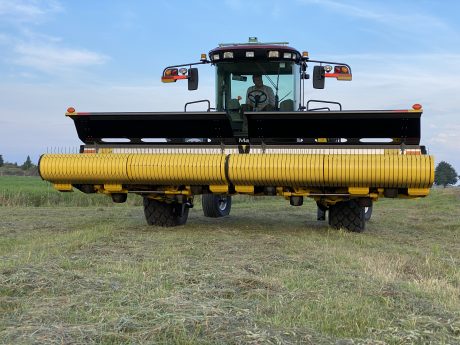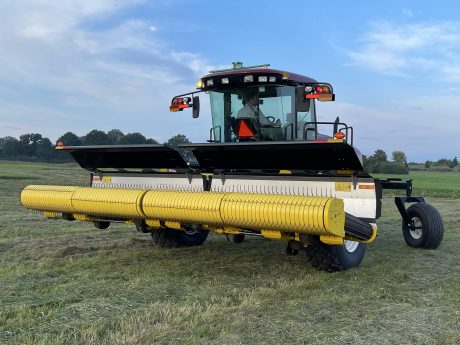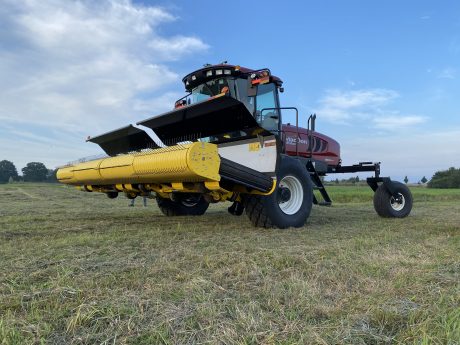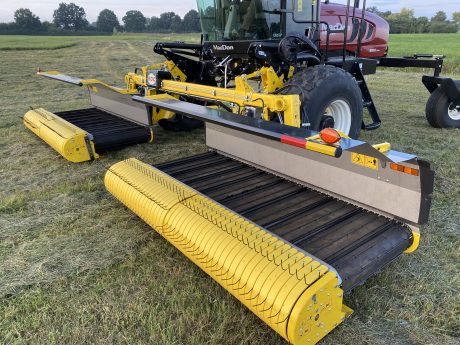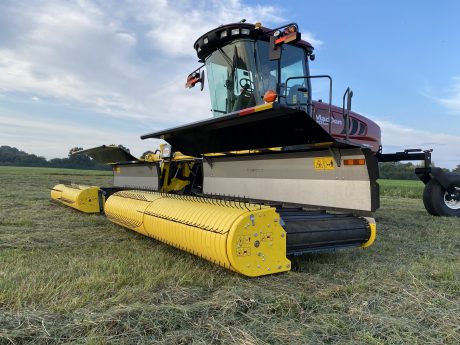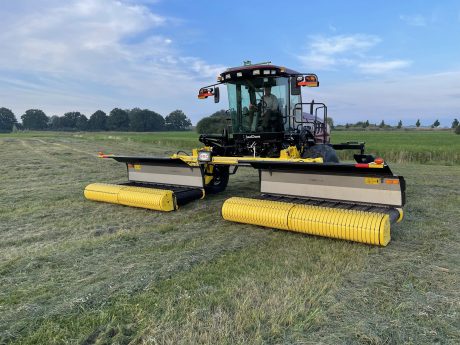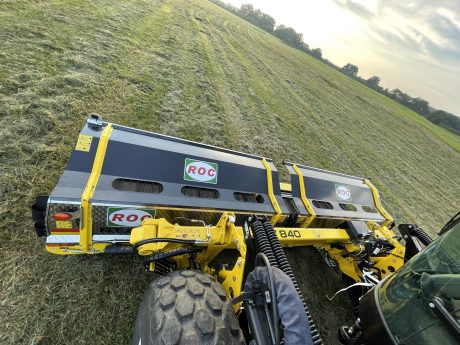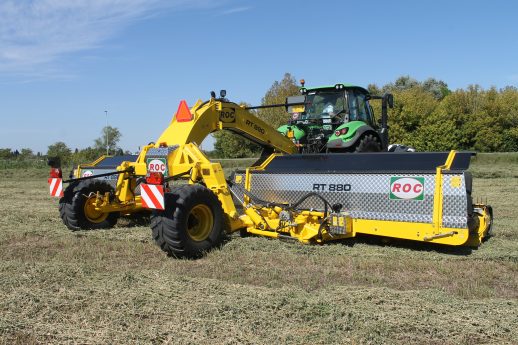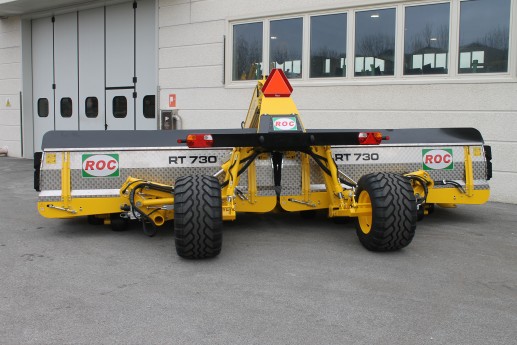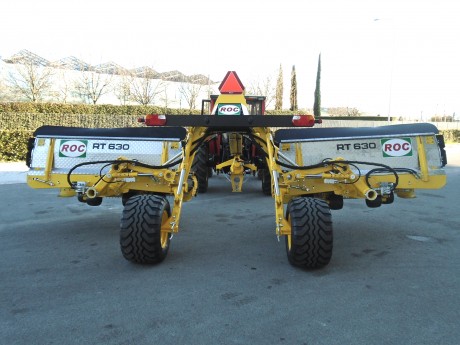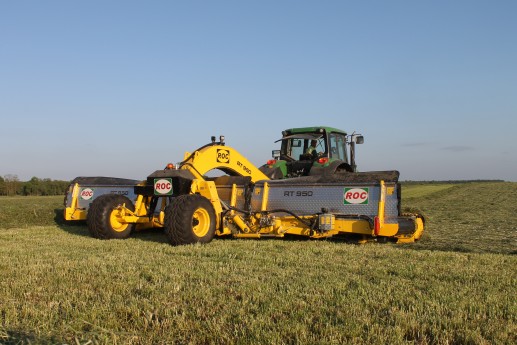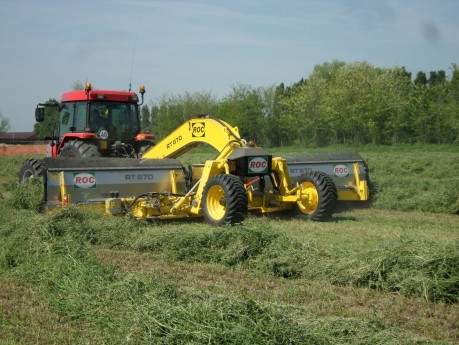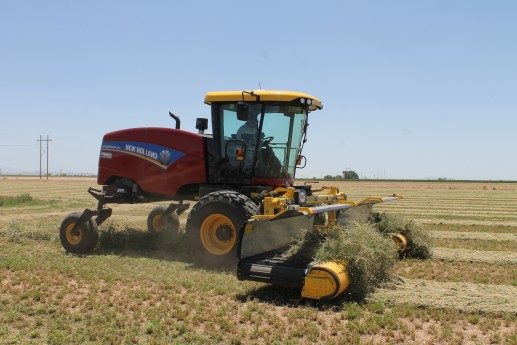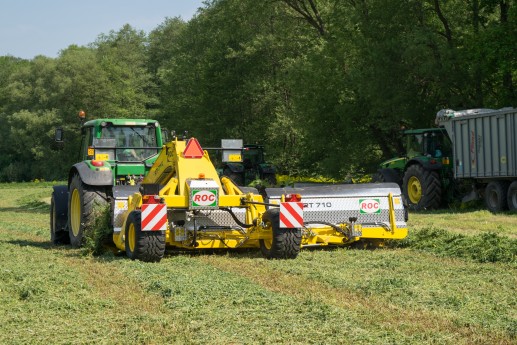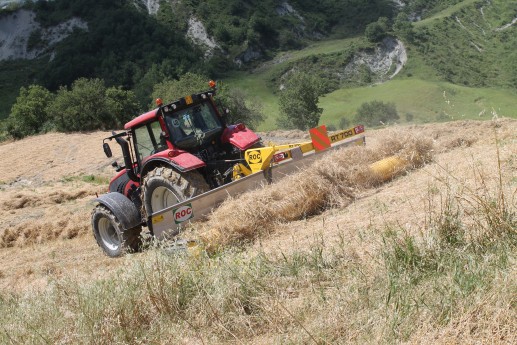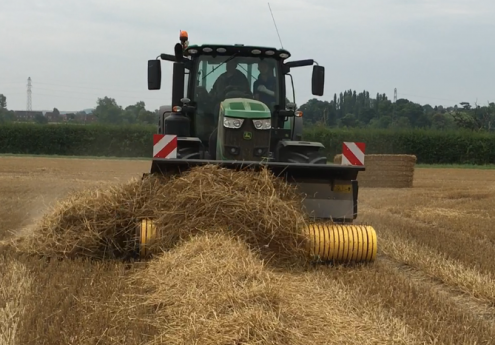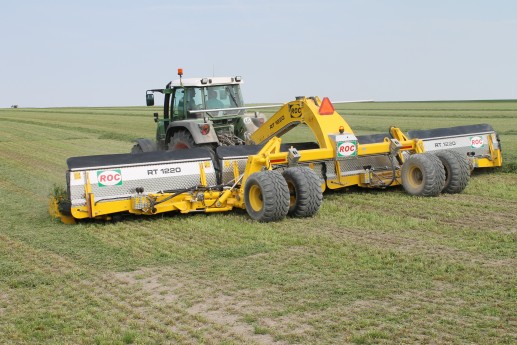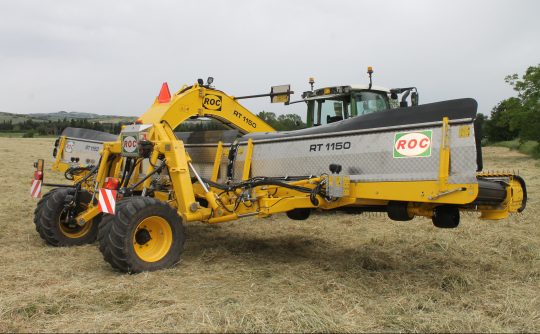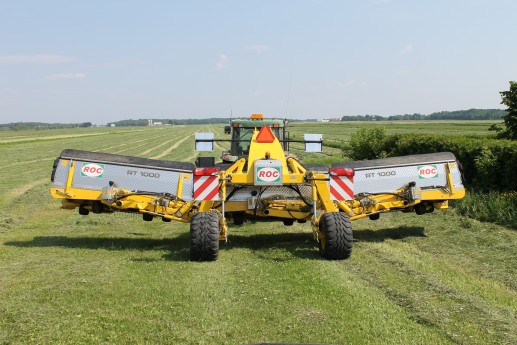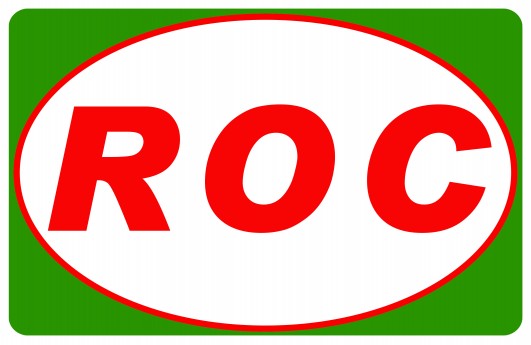RT 840 M
The Continuous ROC merger represents the symbol of a revolutionary raking system because it’s designed to be work frontally to the tractor of a windrower. It has got a variable working width going from 5,9 m up to 8,35 m thanks to a double hydraulic rocker arm system that allows to change the distance between the two pickups, even during the working phase without the need to stop the machine. This system allows the merger, when the pickups are one next to the other, to download one belt on the right and one belt on the left or both the belts on the right or on the left, whereas when the pickups are separated and far-between, it allows to download the crop between the two elements, or to download one belt on the right and one belt in the middle, or one on the left and one in the middle and finally on both sides. The main difference, compared to traditional rakes, is represented both by the pick up system: the RT 840 M lifts the crop in order then to transport it on a conveyor belt, whereas traditional rakes drag the crop on the ground up to the windrow; and by its own position: in fact, the RT 840 M, unlike the other rakes, can be used on reverse drive or in front of a tractor (only while using it in the field).
These differences lead to:
- less stripping and contamination of the crop, caused by the tractor’s wheels which tread on it. The RT 840 M is the only merger among the RT Series to have the possibility of being hooked in front anticipating in this way the harvest before trading on the product. This is really important, especially when you are merging a crop which is totally spread on the ground and when you are working with a merger which is less than 6 m wide, as the width of the tractor’s wheels can easily reach 20-25 % of the merger width, stepping on the same percentage of hay on the field before the harvest;
- working facility in very little fields; in fact, it’s much easier to control the working area while using the merger in front of a tractor and so reducing the operator’s weariness;
- less hay stripping and higher quality. After sun drying, the little alfalfa stalks, which support leaves, become extremely fragile. If the crop is picked up by using traditional rotary-rakes, especially in the absence of dew, little stalks are more subject to break. As a result, there will be loss of leaves and consequently loss of important proteins for animal feeding. On the opposite, with ROC system, the crop is lifted and put gently on the belt in order to be transported and deposited centrally without any damage. Moreover, the tests done with our system show that there is a smaller quantity of soil and pebbles inside the windrow, so that it is possible to reach an incomparable product quality;
- lower product losses. In the presence of wheel-tracks or holes, during crop dragging, traditional rakes tend to leave a part of the product on the ground. On the other hand, with our revolutionary continuous merger, the crop is lifted on a belt and it’s not dragged on the ground as it usually happens;
- less damages in growth. Under normal conditions, already after 2 or 3 days from mowing, some kind of products like alfalfa, reveal a growth made up of small stalks with some leaves. Under these conditions, rotary-rakes tend to break the little stalks, causing a delay in growth and therefore in mowing. At the end of the season, this delay may result in some weeks in the case of 5 crop cuttings.
Moreover, the machine has got some other advantages:
possibility to increase the working hours of the same machine, by reducing in this way the number of employed equipment. Compared to a traditional rake, the RT Series treats the product, for instance alfalfa, in a very delicate way so that it is possible to extend considerably the working hours as far as to double the daily hours in most cases. This system presents several advantages. Firstly, it allows to work the same surfaces with less mergers and less tractors and to decrease the number of operators, as traditional rakes can work only few hours per day. Furthermore, there’s also the chance to avoid working at night, which is particularly expensive and not so well widely accepted by operators. By concentrating the work during daytime, the product is dryer and more uniform, which is a hardly achievable result if you rake a product wet by dew.











